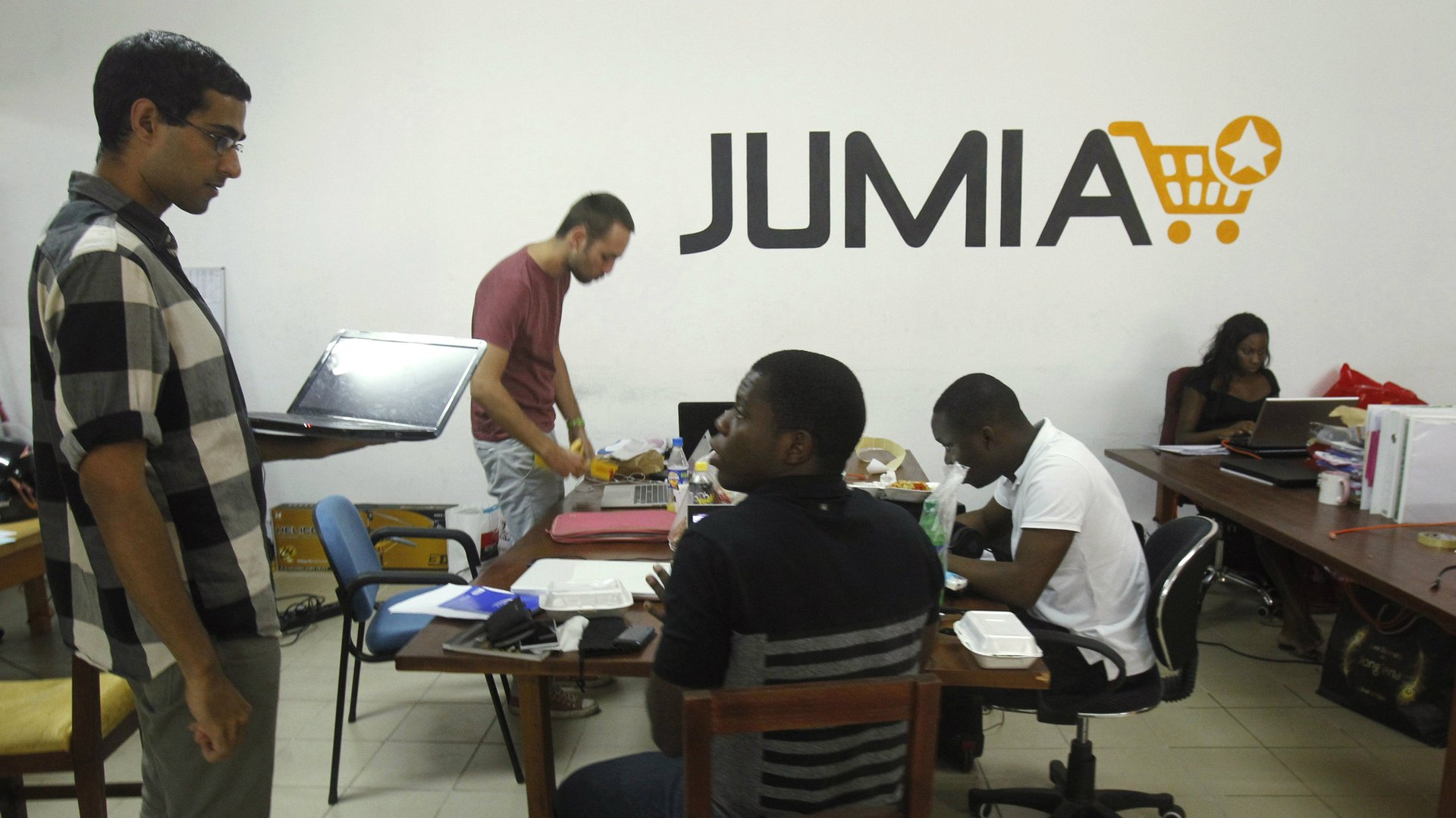How AIG became Africa’s first billion-dollar e-commerce giant after overhauling its management
Africa Internet Group (AIG), parent company to e-commerce brands like Jumia and Jovago, has become Africa’s first venture capital-backed business to be valued at $1 billion dollars after an $83 million investment from insurance company AXA for an 8% stake.


Africa Internet Group (AIG), parent company to e-commerce brands like Jumia and Jovago, has become Africa’s first venture capital-backed business to be valued at $1 billion dollars after an $83 million investment from insurance company AXA for an 8% stake.
It’s a remarkable achievement for any Africa-based startup, much less one that relies on a very small, but growing, middle class consumer base. It also has to overcome unreliable power supply and logistics hurdles in most of its local markets.
But what is especially noteworthy is the timing of the funding. AIG, which is controlled by German investment firm Rocket Internet, has seen its various companies going through a period of layoffs and management firings in the last few months in the run-up to this investment.
Jumia, an online retailer operating in 11 countries in Africa, is AIG’s biggest brand having attracted up to $200 million in funding to date. Launched in 2012, Jumia has grown to become one of the continent’s leading e-commerce brands. But in October, Jumia reportedly laid off as many as 300 people for its Nigeria business. It also suddenly replaced its managing director in Nigeria—its biggest market. All this comes amid speculation that Jumia was losing ground to homegrown rival, Konga.
Meanwhile over at Jovago, AIG’s pan-African hotel booking platform, Marek Zmysłowski, its popular managing director left five months ago. His exit seems to be particularly contentious. Zmysłowski, who’s a Polish national, tweeted he’s being sued by Jovago but has since deleted that tweet. This week, Zmysłowski launched his new start-up, HotelOga, which also targets the hotel industry.
Asides from Jovago, AIG has also replaced its heads at Lamudi, Easy Taxi and Kaymu in its Nigerian offices in the last few months. Kaymu, AIG’s online marketplace shut down operations in Zambia, citing ‘macroeconomic reasons’.
In total, AIG runs ten e-commerce platforms, differing in size and range, across the continent. Sacha Poignonnec, Paris-based chief executive of AIG, declined to comment on the details of the upheaval at his various businesses. “The company has to go through phases, we are a young company,” he told Quartz.
The upheaval at some of AIG’s businesses might have led some to wonder if the parent company would pare down its African investments. That hasn’t been the case so far. Poignonnec insists the group is focused on growing its businesses. “What matters is that we believe in this opportunity long-term and that has not changed,” he told Quartz.
It is not unusual for start-ups to go through structural and strategic changes in the early days as they figure out their best business model. What is less common, however, is for several different startups under the same parent company to go through similar upheaval just weeks before getting a very large vote of confidence from a major investor like AXA. Indeed an investor could insist on changes in management and strategy before making a financial commitment particularly if the recipient is in need of a cash injection.
AIG say the new funding will “strengthen the balance sheet” and “support AIG’s continued growth.” The investment will be finalized during the first quarter of this year.
As part of the deal, AXA will also leverage AIG’s vast online client base to sell custom-made insurance products on the different platforms. Other partner investors in AIG include Africa’s largest mobile operator MTN and Swedish telecoms conglomerate Millicom.
AIG’s model is a replica of the start-up model developed by Rocket Internet, which combines roles as a startup incubator and venture capital firm. Its strategy is to back clones of Silicon Valley startups then accelerate their growth in Europe, South America, Asia and Africa. The idea is for Rocket-backed startups to eventually dominate the market and Rocket to sell the startup to the company they cloned it from. For example, Jumia could be sold to Amazon or EasyTaxi to Uber.
None of AIG’s companies are known to have turned a profit yet but as smartphone penetration deepens across the continent, the company is betting on an e-commerce boom while it grows. Jumia, for example, recorded gross revenues of 206 million euros ($233.6 million) in the first nine months of 2015.
“We want to be profitable but we are very long-term oriented. Amazon is a great model to look at. They have a great valuation, they have a great customer base,” said Poignonnec. “Everyone one is confident that Amazon has a great future but they are still yet to make money.”